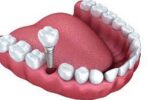What Are Genetic Factors for Dental Health?

Genetic factors refer to the features and characteristics that we inherit from our parents. These qualities are determined by the DNA we inherit from our parent`s genes as explained by a dentist in Springfield, VA. Genes are accountable for our physical and behavioral features. This covers the characteristics that influence our oral health. Our parents’ DNA can predispose us to oral disorders including cavities, gum disease, and malocclusion. In this blog post, we will discuss the genetic factors affecting dental health.
Tooth Color
Our teeth color is determined by a mix of hereditary and environmental factors. Genetic differences can influence the thickness and translucency of enamel, the outer covering of teeth. While environmental variables such as food, age, eroding enamel, and oral hygiene habits all influence tooth color, heredity may incline individuals to specific enamel tints or variants.
Periodontal disease
Periodontal disease, which causes inflammation and infection in the gums and surrounding tissues, has been related to hereditary factors. Specific gene variants have been identified as potentially increasing susceptibility to periodontal disease. These changes can alter how the immune system responds to germs, thus increasing the risk of gum infections.
Tooth Decay
Genetic factors also impact tooth decay risk. While regular brushing and flossing are still important for avoiding cavities, certain people may be genetically predisposed to tooth decay. Genetic changes in the composition of saliva, which helps protect teeth from decay, might raise the risk of dental caries, or cavities.
Tooth Size and Shape
Have you ever observed that some people’s teeth are bigger or smaller than others? Genetics contributes to variance in tooth size and form. For example, some people may inherit genes that predispose them to having larger or smaller teeth, which can have an impact on their overall grin aesthetics and oral function.
Oral Cancer Predisposition
Oral cancer is a kind of head and neck cancer that mostly affects the mouth, tongue, and lips. Tobacco usage and excessive alcohol intake are well-known risk factors.
However, some people may be genetically susceptible to acquiring certain tumors. If you have a family history of cancer or a known genetic mutation that increases your chance of developing cancer, you should have additional tests and exercise caution.
While genetics have an unquestionable part in our dental health, we must remember that our daily behaviors and oral care routines have a huge impact on results. Understanding one’s genetic propensity can help one make more educated oral care decisions.






